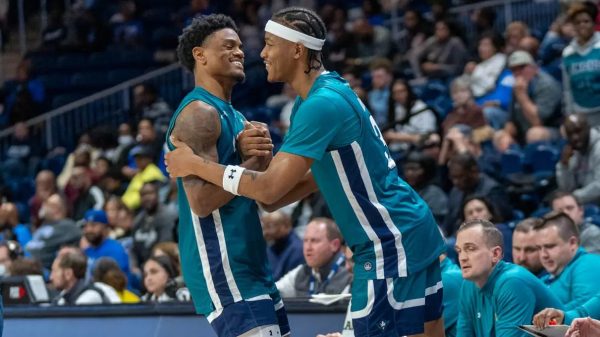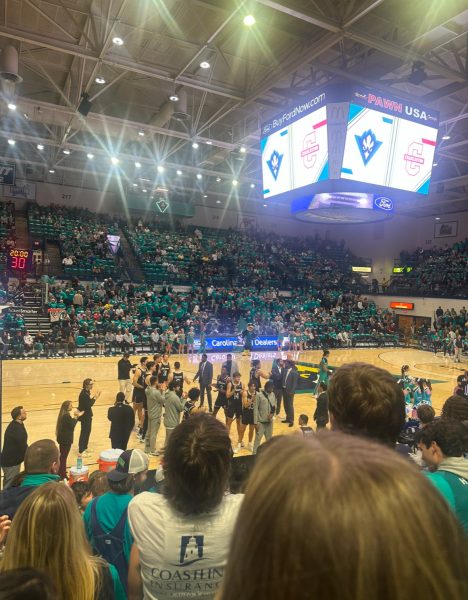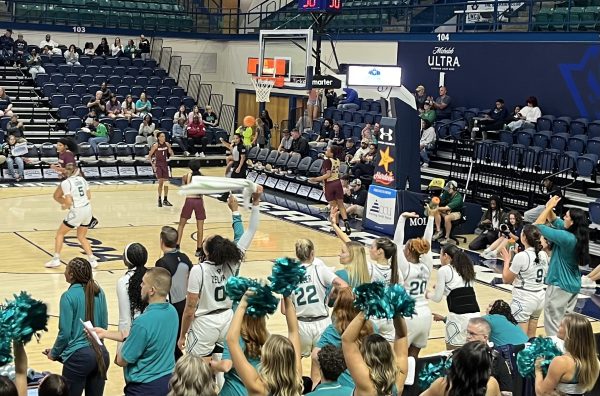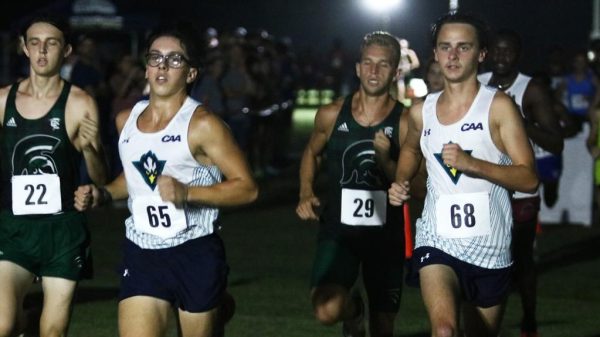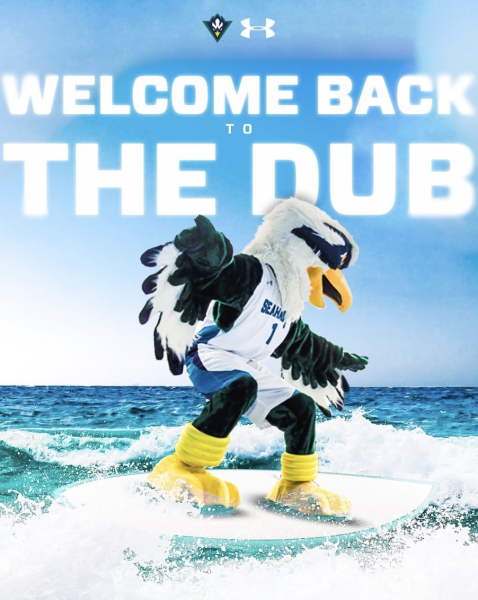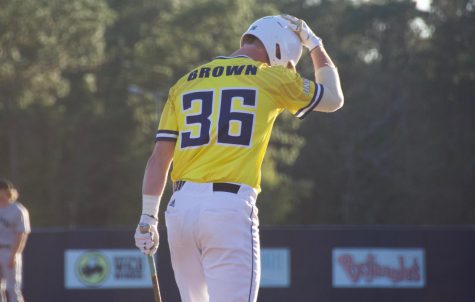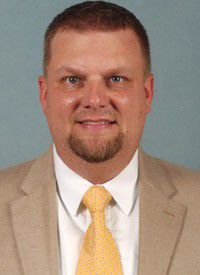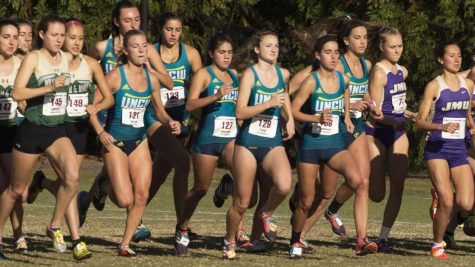Track, cross country living in the moment amid program cuts
EDITOR’S NOTE: This story was published before reports of the team’s resurgence began surfacing.
The whirlwind of events surrounding the UNCW track & field and cross country teams over the past two-plus months has been well documented.
But that doesn’t mean it’s gotten any easier for those involved with the programs being cut.
In an effort to consolidate funds within the athletic budget and redirect those funds to other sports programs, it was announced to athletes and coaches on Dec. 8 that men’s outdoor track and cross country and women’s indoor and outdoor track would be discontinued beginning in the 2015-16 school year. The school will keep women’s cross country and add sand volleyball to its athletic portfolio next academic year.
The move was met with expected uproar and outrage by current and past members of the UNCW track and cross country family, especially considering the men’s cross country and indoor track teams survived proposed cuts in the spring of 2013.
Even without adequate funding for much of the team’s existence, the track and cross country teams have proven to be some of UNCW’s most successful sports programs. The men’s track & field team captured their 11th CAA championship, and first since 2009, in 2014 with then-freshman Brandon McLean being named CAA Rookie-of-the-Year and Coach Jim Sprecher garnering his eight CAA Coach-of-the-Year award.
McLean captured UNCW’s first ever Rookie-of-the-Year award after totaling 28 points at the conference championship last spring. McLean won the 100 meters and finished second in the 200 meters.
Sprecher, meanwhile, helped guide UNCW to become the third school to win all four relays at the CAA Championships and first since 2003.
Fast-forward just a short, seven months later, and the teams were faced with an unexpected blow.
Word spread in early December that the teams faced the serious risk of being cut from the athletic budget, an all-too familiar feeling for men’s track teams in the CAA, which only fields three teams on the men’s side, compared to eight for the women’s.
What made matters worse for the students specifically was the timing of the announcement, during a Monday on exam week. While UNCW officials noted they planned on announcing the cuts later in the week, word spread to Sprecher at church on Sunday, Dec. 7 of the possibility of cuts.
After confronting officials the following morning, coaches for the programs were informed of the decision around 11am that Monday. A meeting was called for the student-athletes at 6:30 p.m. that night to announce the cuts.
“I was in Cameron Hall getting ready to take my math 111 exam when I got a text saying, ‘They cut the track team,’” McLean said. “I couldn’t focus on my exam. I was just stuck. When that happened, the first thing that went through my head was, ‘What am I gonna do now?’ Sports is what I live for. Sports is what keeps me focused. Sports is what keeps me off the streets so I feel like, if they get rid of the program, they don’t really care about what might happen.”
The move to cut the programs was based off the finances involved with the teams. According to an official statement released by UNCW athletic director Jimmy Bass on Dec. 8, the current cost of the UNCW track program is $595,000.
Considering the costs of adding sand volleyball, keeping women’s cross country, and, arguably most importantly, honoring the scholarship of any track student-athletes that remain at UNCW, there is an estimated net-savings of $243,571 for 2015-16.
The reasoning behind the cuts is clouted for UNCW distance assistant Layne Schwier, however. Schwier, who is currently entering his 12th year as an assistant at UNCW, has overseen vast improvement in the program since his beginning. Distance runners under Schwier currently hold 105 spots on UNCW’s Top-10 all-time lists (44%).
The team’s success stretches off the field, as well. In five of Schwier’s 12 years with the program, a UNCW track or cross country athlete has served as president of the Student Athlete Advistory Committee (SAAC), which is currently helmed by cross country and track performer John Riemer.
The team has also sent eight student-athletes to the SAAC leadership summit since 2007. Aside from the displayed leadership and student-athletes the cuts are depriving UNCW of, Schwier argues that alumni funding has not been as big of a problem for the program as the school has made it out to be.
“Their (athletic department) idea of support is dollars,” Schwier said. “A lot of our alumni in recent years have chosen not to donate, not to be a part of the Seahawk Club for a multitude of reasons, partly because they know any donations going towards the Seahawk Club likely weren’t benefitting us so they were hesitant… They would write us a check directly, but they wouldn’t donate to the Seahawk Club. They didn’t see our support. We know we have support.”
The money has been an issue for the program in the past, but that hasn’t stopped them from earning the accolades they have come to be recognized for. Aside from the swimming & diving programs, the track & field teams have proven to be UNCW’s most successful as far as hardware is concerned. The team even captured the school’s first CAA championship in UNCW history.
These feats were accomplished all while dealing with a smaller budget when compared to other successful programs.
“You look at college athletics and you look at Division I sports, you range all the way from University of Texas who has $140 million-plus budget, and we have an $11 million budget, yet we’re all Division I,” Schwier said. “We rely on 70-plus percent of our budge to come from student fees. It’s all from subsidized money from the school which is primarily student fees. And yet we’re still $10 million behind the next-lowest in our conference or something like that.”
Another noted facet UNCW faces to lose by the cutting of the sports teams is the amount of minorities represented on capmus. According to the school’s website, of the 2,159 freshmen students admitted in the Fall of 2014, only 17% of them are categorized as diverse.
Overall, the track and cross country teams comprise roughly one-third of the total student-athletes on campus. Eliminating those programs may shake the diversity landscape at UNCW even further.
This especially hits home for seniors on the teams like Cam Walton, an African-American.
“(My experience on the team) has been life changing,” Walton said. “A guy from Cary who just wanted to become a D-I athlete and I think that’s everyone’s dream, to become a Division 1 athlete and compete on the highest level. That’s the opportunity they gave me here at UNCW and, now that the track team is cut, I feel like they’re not giving the kids those opportunities. Young, African-American men and women and everyone who wants to become an athlete, they’re taking that chance away.”
Walton was chosen as the Most Outstanding Performer of the 2014 CAA Championships. The senior won the long jump and triple jump, while placing second in the high jump.
Amid all of the uncertainty surrounding the program, the teams have been forced to face obvious subtractions in the process. Three freshmen decided not to run for the track team at all this spring, and many student-athletes have begun looking to transfer elsewhere to continue their athletic careers.
Nevertheless, the elimination of the programs have provided an extra chip on the athletes shoulders ahead of the outdoor track season opening event Battle of the Beaches on Mar. 7.
The team is also looking forward to the following weekend and the Seahawk Invitational, where many alumni are expected back on UNCW’s campus to show support for the programs.
“We don’t let stuff like that get to us,” McLean said. “We believe in living in the moment. We enjoy the party. We go to practice every day even when there is people out there with cameras and reporters all in our face. We’re still out there having fun. Nothing is changing. You can’t get rid of us that easy.”
McLean and those that wish to continue their track or cross country careers elsewhere will have the opportunities to do so. Both, Sprecher and Schwier have acknowledged they’ve already begun receiving calls about athletes, and are doing everything in their power to ensure a productive future for those that wish to continue their careers elsewhere.
“You can choose one of two things to do,” Sprecher said. “You can quit or use it to motivate you. Some people use this to motivate themselves. There’s always that certain amount of ‘I’ll show you’ type attitude. Athletes being the competitors they are, most aren’t going to quit. They’ll use it to do some special things.”
While the past two-plus months has flipped the track and cross country programs on their heads, the athletes and coaches are wary to focus on the bleak outlook of the program, instead finding motivation to prove the school’s cuts are ill-advised.
There’s not much else left to do for a team looking to prove its purpose to UNCW administrators and beyond.
“We definitely have something to fight for,” Walton said. “We’ve grown so much closer from this experience… We can all feel that everyone out there is working for each other. We don’t want to let each other down. Once you have that, once the competition rolls around and now that we’re getting in season, you can really see in our performance that everyone is really pushing each other and the motivation is still there.”



